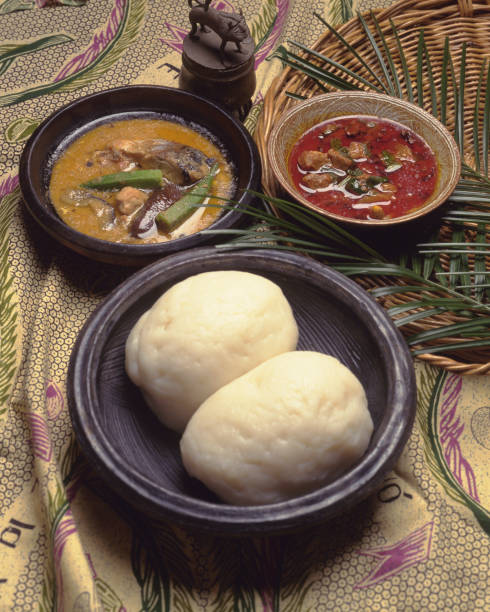Various foods can act as an accelerator of corrosion in everyday cookware, leading to degradation of the cookware and the release of metal ions into the food. Toxicological studies have revealed that increased doses of metals, such as nickel and chromium, can cause adverse reactions in those whom consume the prepared food.
Fufu is a common dish in Western Africa, which consists of starchy ingredients (cassava and plantains) that are formed into dough-like balls. Due to the widespread consumption of Fufu, there is a need to understand the role of corrosion in cookware in order to improve material choices for cooking, and ultimately decrease risks of negative health outcomes. The effect of Fufu on corrosion during cooking is being studied by Robert Addai at Western University, supervised by affiliate SSW member Yolanda Hedberg.

Stainless steel is a widely used cookware material, commonly found as either grades ASTM 201 or ASTM 304. It is well known that stainless steel is readily attacked by organic foods, particularly at longer cooking times, which can release various metal contaminants into the food. During this project, various stainless-steel coupons were exposed to different solutions containing Fufu. Subsequent light microscopy and scanning electron microscopy (SEM) revealed localized corrosion on the surface of the stainless steel, indicating localized breakdown of the stainless steel’s passive oxide layer. The release of iron, chromium, nickel, and molybdenum was then investigated and quantified by Inductively Coupled Plasma Mass Spectrometry (ICPMS).

Robert’s results showed that Fufu increases the release of metal ions from stainless steel. These findings have spurred the need for further investigations into the choice of cookware materials, so that chefs everywhere can understand which materials will withstand the effects of cooking various foods, including Fufu.

